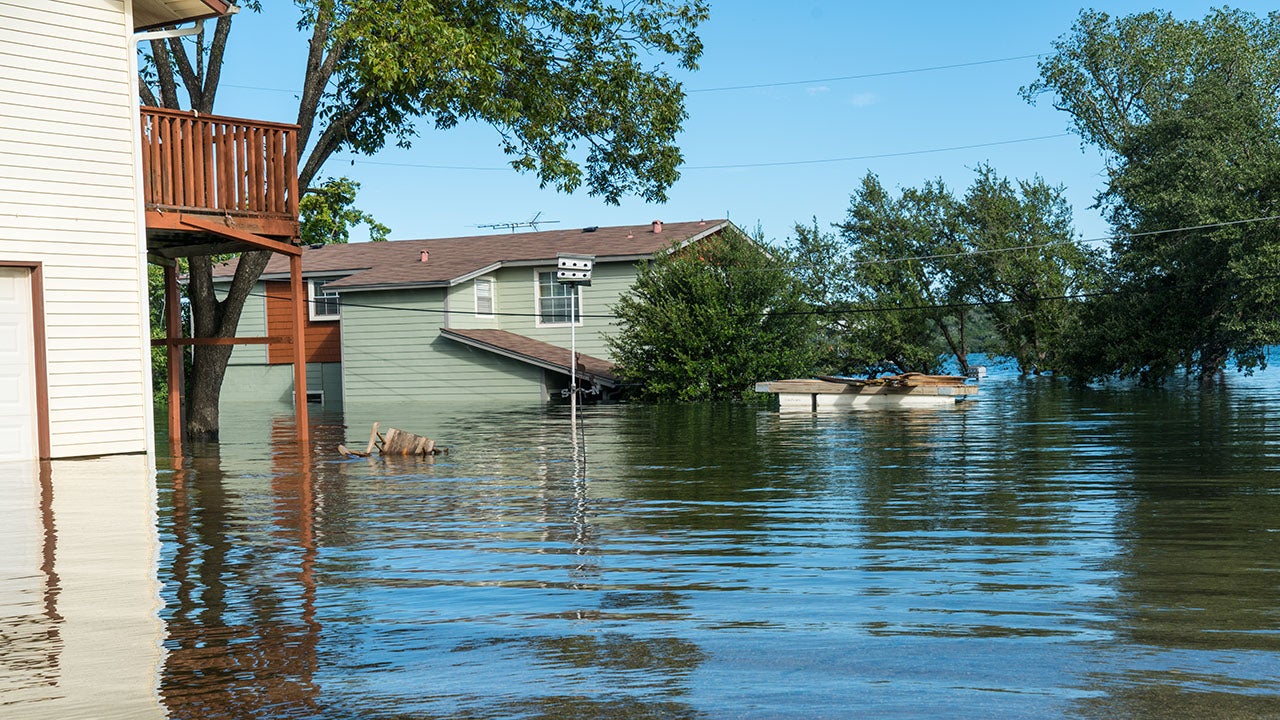What to do if your homeowners insurance is canceled




Key takeaways
- Homeowners insurance policies can be canceled or nonrenewed for lapses in payment, changes in underwriting criteria, the condition of the home or property and more.
- Insurance companies are required to provide written notice of cancellation or nonrenewal, typically within 30-120 days (varies by state), to allow policyholders enough time to shop around for alternative coverage.
- In some cases, policyholders may be able to contest a cancellation or nonrenewal by making changes to their home or policy that will satisfy the insurer and allow them to keep their coverage.
- After a cancellation or nonrenewal, it may be harder to find affordable home insurance, but there may be other providers offering coverage for high-risk homeowners in the area.
Homeowners insurance protects your home — likely your most valuable asset — in case of damage from natural disasters and other covered perils, such as a structure fire, burst pipe, theft or vandalism. In some situations, your homeowners insurance can drop you by canceling or nonrenewing your policy, leaving you without this important financial protection. Bankrate’s insurance editorial team explains the different types of home insurance terminations and what to do if your homeowners insurance is canceled or nonrenewed.
What to do for different types of homeowners insurance cancellations
There are different solutions if your homeowners insurance is canceled or nonrenewed. A cancellation or nonrenewal can also occur if you have a condo or renters insurance policy. We explain the three most common types of home insurance cancellations and how to resolve them.
Lapse of home insurance payments
Your policy could be canceled and your coverage could lapse if your home insurance payments are not made on time, leaving your home vulnerable to losses that you’d be left to pay out of pocket. Many homeowners insurance companies offer a grace period for you to make the payment to prevent your policy coverage from lapsing. Payment lapses are often the easiest insurance cancellation to resolve, and you may be able to avoid a coverage lapse.
Cancellation of home insurance policy
A newly in-force policy can be cancelled if your home fails an inspection conducted by the new property insurer or if the inspection determines you have undeclared structures like an in-ground swimming pool, trampoline or a detached garage. After your policy has been in force for at least 60 days, your homeowners insurance company can only cancel your policy for a few reasons:
- Claim fraud
- Failure to make timely payments
- Omitting information or misrepresenting yourself on the policy application
- Your insurer decides to voluntarily withdraw from the market
- Your insurer is declared insolvent by the state
While policyholders themselves can cancel home insurance at any time for any reason, insurers have home insurance cancellation laws they must abide by. In most states, your insurance company must provide a written 30-day notice of the cancellation and reason before canceling the policy, giving you time to contest or find a new insurance company. In the case that your insurer determines there has been fraud or material misrepresentation after the first 60 days of your policy being in force, your policy may be canceled immediately.
Nonrenewal of home insurance policy
Unlike a cancellation, which only occurs due to failure to pay your premium, failing inspection, committing fraud or applications misrepresentation, your insurer can decide to nonrenew your policy when it expires for a number of reasons, including:
- Your insurer found a problem after inspecting your home’s exterior, like a roof in poor condition or structural issues
- You filed too many claims in a short timeframe
- The insurance company is no longer offering the same type of insurance in your state.
- Your insurer is no longer operating in your ZIP code or state
- You have an ineligible dog breed
- Your state’s department of insurance approved the insurance company’s request for a mid-term cancellation due to the company’s financial condition or insolvency
Your carrier may have to provide as much as 120 days advance written notice of nonrenewal to give you ample time to find alternate coverage, depending on your state laws.
Your home insurance cancellation rights
You have some rights to consider if your home insurance policy is canceled. For starters, insurers are required to provide you with advance notice of cancellation. The length of notice can vary by state, but is generally between 30 and 120 days. You may appeal the cancellation decision in some circumstances through legal channels. If you find the actions of your insurer unethical or potentially illegal, you may file a complaint with the state insurance department. If your current carrier cancels your policy, you are entitled to seek insurance from a different company.
Can I contest a home insurance cancellation?
You may be able to contest a cancellation or nonrenewal, depending on the situation. If you have an insurance agent, they may be able to work directly with your insurer’s underwriter to come to a compromise, or you could call your company directly. If you have filed numerous claims, for example, you may be able to increase your deductible or remove a certain coverage in exchange for the company keeping your policy. However, it may be a good idea to get quotes from other home insurers as a backup so that you are not left scrambling to find coverage quickly before your current policy terminates if your negotiations fail.
Can I still get home insurance after being dropped from my insurer?
Unfortunately, it may be harder — but not impossible — to find coverage after a cancellation or nonrenewal, especially if you have numerous claims or your home is in poor condition. If you are having trouble finding affordable home insurance after a cancellation, it may benefit you to check around for providers offering coverage for high-risk homeowners in your area. Or, if your home insurance policy was canceled after an insurance inspection, quickly addressing the issue (like repairing or replacing an older roof) may help get you back into your insurer’s good graces.
If your policy cancellation was due to an act of insurance fraud, you may have an extremely difficult time finding replacement coverage. If you get denied coverage by multiple private insurance companies, you should check to see if your state has a FAIR plan option, which are state-run programs for high-risk homes. You can work with an agent to help you find coverage through an excess and surplus lines carrier that writes policies for higher-risk homes not covered through the standard market.
What will my mortgage company do if my home insurance is canceled?
Force-placed insurance may be placed on your property by your lender if your homeowners insurance is canceled and you don’t remedy the situation or find another policy to replace it.
Force-placed insurance does not favor the homeowner. A force-placed policy is typically much more expensive than purchasing a policy on your own — typically running 5–10 times higher than a standard policy — and may not offer the same level of coverage as your previous policy. It generally won’t cover your personal property and may leave you exposed to liability claims as well.
Frequently asked questions
Why we ask for feedback Your feedback helps us improve our content and services. It takes less than a minute to complete.
Your responses are anonymous and will only be used for improving our website.
You may also like

Does homeowners insurance cover flooding?

When and how to fight a denied homeowners insurance claim

What to do if you are dropped from your home insurance

